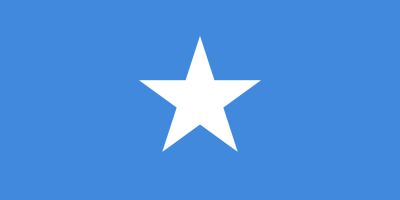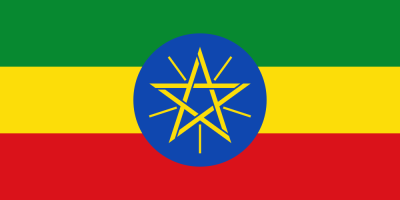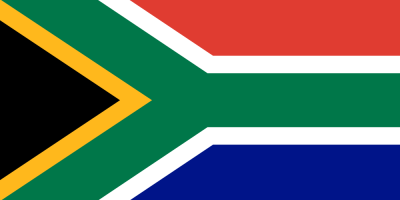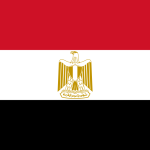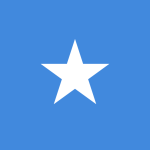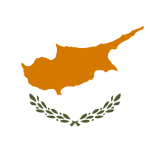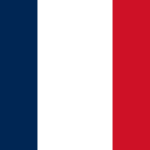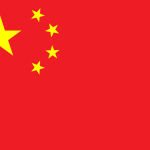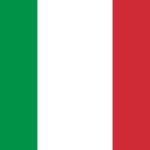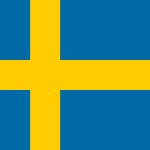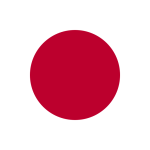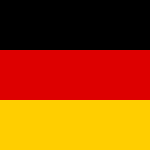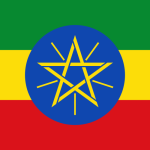Nigeria flag color codes is a bold symbol of unity for the populous African nation. The vibrant green represents the nation’s abundant natural wealth, while the white stands for peace and harmony between Nigeria’s numerous ethnic groups. For designers and developers looking to accurately recreate the country’s distinctive tricolor banner digitally or in print, having the precise Nigeria is essential. Whether working in HTML, CSS, vector formats, or preparing physical materials, access to the specific hex, RGB, Pantone, HSL, CMYK, HWB, and NCOL values for the flag’s green and white allows for accurate color reproduction across any medium. Read on for the official color specifications for the Nigerian flag and the deeper meaning behind each shade that encapsulates the spirit of this diverse nation.
Table of Contents
What are the colors of Nigeria flag?
The colors of the Nigeria flag are:
- Green – Represents agriculture, forests, and the abundant natural wealth of the nation.
- White – Signifies peace and unity among the many different ethnic groups in Nigeria.
Specifically, the flag contains three equal vertical bands of green, white, green.
The exact colors are:
- Green – Pantone 355 C
- White
The hex codes are:
- Green – #008753
- White – #FFFFFF
The RGB values are:
- Green – RGB(0, 135, 83)
- White – RGB(255, 255, 255)
So in summary, the two colors on the Nigerian flag are green and white. Green symbolizes the country’s natural resources and agriculture, while white represents unity and peace. The specific Pantone, hex, and RGB codes allow accurate reproduction of this iconic African flag.
Nigeria flag color codes & Color Names:
GREEN
| Color Model | Value |
|---|---|
| HTML | #008751 |
| HEX | #008751 |
| RGB | 0, 135, 81 |
| PANTONE | 347 C |
| HSL | 144°, 100%, 26% |
| CMYK | 100%, 0%, 40%, 47% |
| HWB | 144°, 40%, 47% |
| NCOL | Deep Jungle Green |
WHITE
| Color Model | Value |
|---|---|
| HTML | #FFFFFF |
| HEX | #FFFFFF |
| RGB | 255, 255, 255 |
| PANTONE | N/A |
| HSL | 0°, 0%, 100% |
| CMYK | 0%, 0%, 0%, 0% |
| HWB | 0°, 100%, 0% |
| NCOL | White |
What is the meaning of colors in the Nigeria flag?
The colors in the Nigeria flag represent the following symbolic meanings:
Green – The green color represents the abundant natural wealth of the country in terms of agriculture, forests, and mineral resources. It reflects the lush vegetation and fertility of the Nigerian landscape.
White – The white color signifies peace and unity between the various ethnic groups and cultures that make up Nigeria’s diverse population. It reflects the country’s aspirations to harmony.
Additionally:
- The two green stripes represent Nigeria’s agriculture and forests, while the white band represents the country’s peace.
- The green was chosen to represent the forests and agriculture rather than the mineral wealth so that if the resources were depleted, the meaning of green would still remain.
- The flag’s colors were first used in 1959 when Nigeria gained independence from British rule.
So in summary:
- Green – Nigeria’s natural wealth, forests, agriculture
- White – Peace, unity of Nigeria’s diversity
Together the green and white create a simple but meaningful design representing Nigeria’s cherished natural environment and hopes for internal harmony as it emerged as an independent nation. The rich symbolism continues to resonate today.
Explore More Flag Colors:
- Great Britain Flag Color Codes
- Kingdom of Serbia Flag (1882-1918) Color Codes
- Paraguay (Reverse) Flag Color Codes
- East Timor flag color codes
FAQs: Frequently Asked Questions:
How many Muslims in Nigeria?
Nigeria has a significant Muslim population. Islam is one of the major religions in the country, and Nigeria has one of the largest Muslim populations in Africa. The exact number of Muslims in Nigeria can change over time due to factors such as population growth, religious conversions, and other demographic dynamics.
Is Nigeria an Islamic country?
Nigeria is a religiously diverse country with a significant Muslim population, but it is not an Islamic country in the sense of being governed by Islamic law exclusively. Nigeria is a secular state with a constitution that guarantees freedom of religion for its citizens.
What is Nigeria known for?
Here are some aspects for which Nigeria is particularly well-known:
Population and Diversity: Nigeria is the most populous country in Africa and the seventh most populous in the world. It is known for its cultural and ethnic diversity, with over 250 ethnic groups and numerous languages spoken.
Oil and Natural Resources: Nigeria is a major oil-producing country and a significant player in the global oil market. The nation’s economy is heavily reliant on oil exports, contributing to its status as one of the largest oil producers in Africa.
Nollywood: Nigeria has a thriving film industry known as Nollywood, which produces a significant number of films each year. Nollywood is one of the largest film industries globally in terms of the number of films produced.
Music and Entertainment: Nigerian music, particularly genres like Afrobeat and Afrobeats, has gained international acclaim. Musicians like Fela Kuti, Burna Boy, Wizkid, and Davido have contributed to Nigeria’s vibrant music scene. The country is also known for its lively entertainment industry.
Cultural Festivals: Nigeria hosts various cultural festivals throughout the year, showcasing traditional music, dance, art, and rituals. Festivals like the Durbar in Kano and the Ojude Oba in Ogun State are notable examples.
Cuisine: Nigerian cuisine is diverse and flavorful, featuring dishes such as jollof rice, suya, pounded yam, and various soups. Nigerian food is known for its use of local spices and ingredients.
What are the three religions in Nigeria?
he three major religions in Nigeria are:
Islam: Islam is one of the predominant religions in Nigeria, particularly in the northern part of the country. The majority of Muslims in Nigeria are Sunni, and Islam plays a significant role in the cultural and social life of many Nigerians. Some northern states, where the Muslim population is substantial, operate under Sharia law for certain aspects of legal and family matters.
Christianity: Christianity is widely practiced in Nigeria, with a significant portion of the population adhering to various Christian denominations. The majority of Christians in Nigeria are either Roman Catholic or belong to various Protestant denominations. The southern and central regions of Nigeria have higher concentrations of Christians.
Traditional African Religions: Traditional African religions, which vary among different ethnic groups, are also practiced by a portion of the population. These indigenous belief systems involve the worship of deities, spirits, and ancestors. Traditional African religions often coexist with Islam and Christianity, and elements of these traditional practices may be integrated into the daily lives of individuals.
What is the main religion of Nigeria?
The religious composition of Nigeria is complex, with different regions and ethnic groups having varying religious affiliations.
Islam: Islam is one of the major religions in Nigeria, particularly in the northern part of the country. The majority of Muslims in Nigeria are Sunni, and Islam plays a significant role in the cultural and social life of many Nigerians. The northern states, where the Muslim population is substantial, have a significant influence on the country’s religious demographics.
Christianity: Christianity is also a major religion in Nigeria, with a significant portion of the population adhering to various Christian denominations. The majority of Christians in Nigeria are either Roman Catholic or belong to various Protestant denominations. The southern and central regions of Nigeria have higher concentrations of Christians.
Traditional African Religions: Traditional African religions are practiced by a portion of the population, especially in rural areas and among certain ethnic groups. These indigenous belief systems involve the worship of deities, spirits, and ancestors.
What language do Nigerians speak?
Some of the prominent Nigerian languages include:
Hausa: Spoken by the Hausa ethnic group, primarily in the northern part of Nigeria. It is one of the most widely spoken languages in the country.
Yoruba: Spoken by the Yoruba people, mainly in the southwestern part of Nigeria. Yoruba is also spoken in some neighboring countries.
Igbo: Spoken by the Igbo ethnic group, primarily in the southeastern part of Nigeria. It is one of the three major ethnic groups in the country.
Pidgin English: Pidgin English is a creole language that has evolved as a means of communication between people from different linguistic backgrounds. It is often used informally and may vary in structure and vocabulary across regions.
Edo: Spoken by the Edo people in the southern part of Nigeria, particularly in Edo State.
Kanuri: Spoken by the Kanuri people, mainly in the northeastern part of Nigeria.
How safe is Nigeria for tourists?
Here are some key points to consider:
Security Concerns: Certain areas of Nigeria, particularly in the northeastern and northwestern regions, face security challenges, including the presence of extremist groups and incidents of violence. It is essential for travelers to stay informed about the current security situation and follow travel advisories issued by their government.
Crime: Like in many countries, Nigeria experiences various types of crime. Petty crime, such as pickpocketing and scams, can occur in urban areas and crowded places. Travelers should exercise caution and be vigilant about their belongings.
Health Precautions: Malaria is prevalent in Nigeria, and travelers are advised to take malaria prophylaxis and use mosquito repellent. Additionally, other health concerns, including waterborne diseases, may require precautions. It is advisable to consult with a healthcare professional before traveling and take necessary vaccinations.
Infrastructure Challenges: Infrastructure, including roads and transportation, may not meet international standards in some areas. Travelers should be prepared for potentially challenging travel conditions and plan accordingly.
Local Laws and Customs: It’s important for tourists to be aware of and respect local laws and customs. Nigeria is a diverse country with different cultural practices, and understanding and respecting local norms contribute to a positive experience.
What are 5 facts about Nigeria?
Here are five interesting facts about Nigeria:
Most Populous Country in Africa: Nigeria is the most populous country in Africa and the seventh most populous country in the world. With a diverse population comprising various ethnic groups and languages, Nigeria’s cultural landscape is rich and vibrant.
Oil Production: Nigeria is a major player in the global oil industry. It is one of the largest oil producers in Africa and has significant oil reserves. The oil sector has historically played a crucial role in the country’s economy, contributing to both its economic growth and challenges.
Nollywood Film Industry: Nigeria is home to Nollywood, one of the world’s largest film industries. Nollywood produces a vast number of films each year, ranking third globally in terms of the number of films produced, after Hollywood and Bollywood.
Diverse Languages: Nigeria is linguistically diverse, with over 250 ethnic groups and more than 500 languages spoken. While English is the official language, several major indigenous languages, such as Hausa, Yoruba, and Igbo, are widely spoken across the country.
Cultural Heritage: Nigeria has a rich cultural heritage, with a history that includes ancient civilizations such as the Nok culture and the Kingdom of Benin. The country is known for its traditional festivals, music, dance, and art, contributing to its cultural significance on the African continent.

